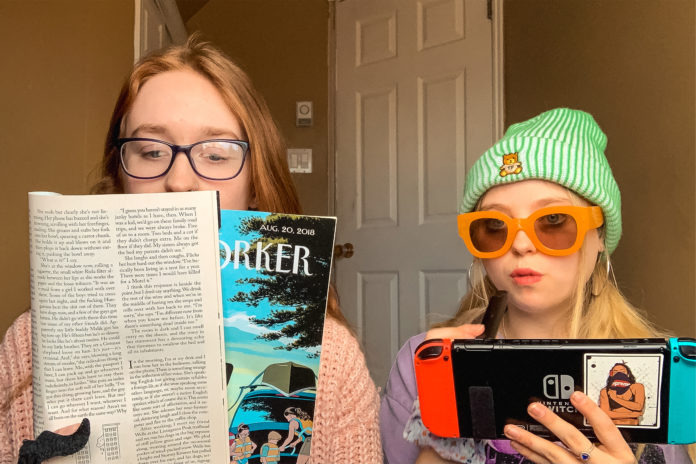

The social media app TikTok is flooded with videos where Millennials and Generation Z attack each other over cultural differences. Gen Z initiated this rift by calling side parts and skinny jeans out-of-date, while Millennials fought back with videos teasing Gen Z’s fragility.
Caroline Jonah, a fourth-year Gen Z St. Thomas University student, said this is the first time Gen Z has their voices heard.
TikTok is predominantly used by Millennials, born between 1981 and 1996, and Gen Z, born between 1997 and 2012.
“I think for a lot of them in childhood, it probably felt like Millennials were speaking for them on social media,” said Jonah. “This is the first time that [Gen Z] can say, ‘actually this is what we think.’”
Jonah said TikTok trends seem to start with Gen Z, adding that Millennials – who essentially invented social media – may see this as a threat. Jonah said the app is the only social media platform where Millennials are playing catch-up.

“They still have Twitter, they still have Instagram, those are mainly run by Millennials,” said Jonah.
Susan O’Donnell, a sociology professor at the University of New Brunswick, said tension between generations may stem from Gen Z dealing with issues created by the older generation.
O’Donnell said she attended climate strikes and understands that the younger generation is angry at the older generation for what they have done to the planet.
She said Gen Z’s familiarity and comfortability with social media could make them more conscious of their image. O’Donnell said when she was young, the pressure wasn’t as strong as it is today.
“There were certainly different jean styles, different this and different that, but it wasn’t this intense thing about how you look,” said O’Donnell.
Hannah MacQuarrie, a fourth-year STU student, said TikTok is exacerbating generational differences, where different generations of social media are pitted against one another.
MacQuarrie said that pushing trends, such as releasing outfit-of-the-day videos, may be Gen Z’s way of expression during a pandemic.
“Maybe TikTok is kind of becoming the daily walk into school, wearing your new outfit and feeling good about yourself,” said MacQuarrie.
Jonah said it makes sense Gen Z wants to depart from Millennials in hairstyle, fashion and so on. But they also noticed a shift in humour between the two generations.
“I think it’s a good thing that they want to assert their own identity,” said Jonah.


The term Zillennial circulated on TikTok to describe those born on the cusps of both generations. MacQuarrie said she and her Zillennial friends don’t care about trends the way most TikTokers do.
“I feel like there’s also a subgroup, where we can relate to both ends and we don’t want to a hundred per cent identify with either one,” she said.
MacQuarrie said both generations, especially on TikTok, should be aware of how they are guided by pop culture and fashion trends and how this affects their self-image. It’s important to remember that terms like snowflake or Boomer will only strengthen the rift between generations, she said.
“If you’re friends with someone, then all of a sudden they’re demeaning you saying, ‘you’re too sensitive and you’re too different.’ Are you going to want to be friends with them? No, probably not.”
